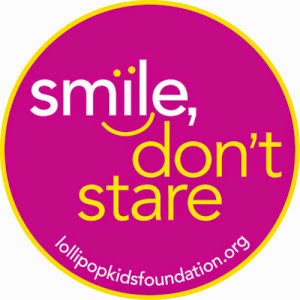It is the end of Cerebral Palsy Awareness Month. I pondered what I wanted to say on the last post about this month.
You know how hard it is for me to get into a rhythm of writing, much less on ONE subject.
I want to give you some pointers on Disability Etiquette. They are generally the same rules as for good etiquette in society.
Remember we (People with any disability) are human beings just like you. We have feelings. We go through challenges and triumphs just like you. We have family and friends just like you. We love just like you. We want to be understood just like you do.
Do NOT stare. TEACH your kids NOT to stare. It is rude. It is uncomfortable. Yes, you can look and be curious but after a few seconds turn your head. It can actually be hazardous to your health. I've seen so many people almost hit by cars, run into walls or other people because they were staring at me. I can tell you so many stories.
There is this one man in church. He sits in the back pew. Every time Hubby and I walk in, his eyes follow me from the time I enter the door until I sit down. I have stared him down a few times. You would think it would make him stop. I told Hubby one day I wanna stick my tongue at him. It's just a reaction. Sorry. But Hubby subtly reminds me I am in church.
If you are that curious ask them QUIETLY. "May I ask what your disability is?" Or as a child will yell, "Why do you walk like that". That is fine but DO NOT yell. It brings more attention then necessary like the Priest did to me. Most of us don't mind explaining. Remember to be tactful and discreet.
Do not come up to us and assume. I don't know how many times people have come up to me saying, "Oh poor child, you had Polio?' What kind of accident you were in? 99% of your assumptions are WRONG.
When talking to us, talk directly to US. If we have a spouse, aide or sign language interpreter, don't tell them what you want to tell us. We can hear and talk (or communicate in another way) for ourselves.
Do NOT stare. I know I said this before but if you only remember one thing is this one.
If you offer assistance, wait until the offer is accepted. If we accept, listen to our need and help. Do not take over without being asked or asking.
Treat adults as adults. Don't use the tone you use for your children. It's aggravating. If the person is in a wheelchair (FYI to newcomers, I am not.) do not pat their heads in a patronizing way.
The last one I deal with nearly every day. Listen attentively when you are talking to a person trouble speaking or has a speech defect. Be PATIENT and don't interrupt until they finish, rather than correcting or speaking for the them. If necessary, ask them short answer questions or questions requiring only a nod. NEVER pretend you understand if you don't. You could miss on helluva lot! Repeat what you understand and allow them to respond.
I BEG you to listen carefully and try to understand. It is just as frustrating for us as it for you if you don't understand. We want you to understand and doing the best we can.
These are the most important to ME. You can find more etiquette at these sites:
If you remember that those with a disability is a human being and treat them as such, it's a good start.


LOL the last comment came from my work account? weird
ReplyDelete